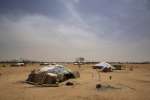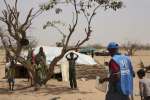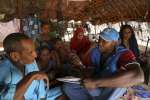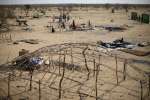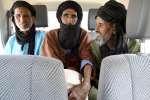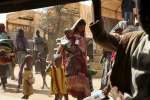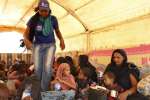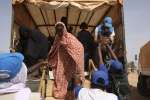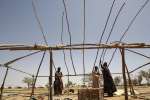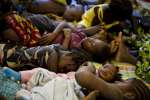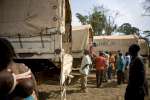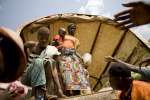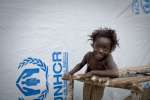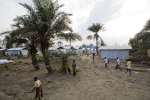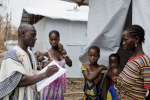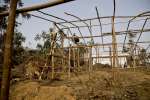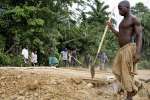- Text size
 |
|  |
|  |
| 
- Français
Urban refugees from Côte d'Ivoire move to camp
News Stories, 15 July 2008

CONAKRY, Guinea, July 15 (UNHCR) – More than 150 urban refugees from Côte d'Ivoire were on their way Tuesday to a rural refugee camp in southern Guinea after telling the UN refugee agency they wanted to leave the capital, Conakry, because life was becoming more difficult there.
A convoy of eight trucks carrying 152 people (48 families) and their belongings left Conakry early morning for Kouankan 2. An ambulance, security forces, UNHCR personnel and other aid workers accompanied the convoy, which is due to arrive at its destination on Wednesday afternoon.
There are no immediate plans to move more urban refugees from Conakry, though this might change if other refugees confirm a desire to leave. Before Tuesday's departure, there were some 1,270 registered refugees from Côte d'Ivoire living in Conakry out of a total of 4,416 Ivorian refugees in Guinea.
Many of those leaving Conakry are regarded as vulnerable, including female heads of household. The refugees chose to move to Kouankan because of socio-economic difficulties they faced in Conakry, where they had received protection and assistance from the government and UNHCR.
"The refugees said that, because of housing problems in Conakry, they would rather go to the camp, where food, water and medical assistance is provided," said Dillah Doumaye, UNHCR representative in Guinea.
The refugees will be given a food parcel from the World Food Programme (WFP) on their arrival at Kouankan 2 camp, where tents have been erected to house the new arrivals. The camp currently hosts some 3,100 refugees, all from Côte d'Ivoire
